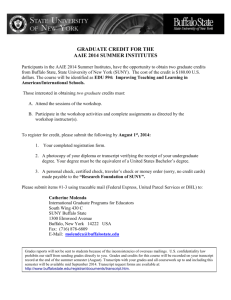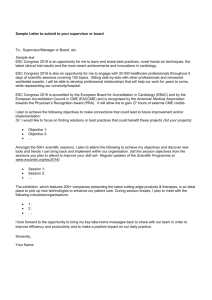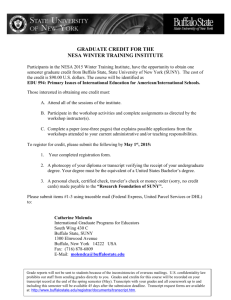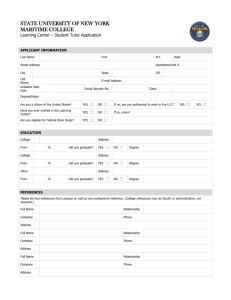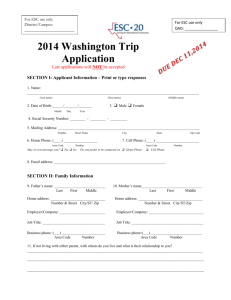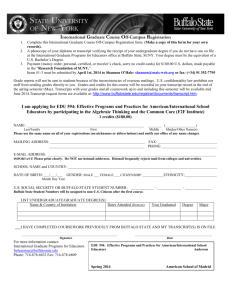Degree Program Rationale
advertisement
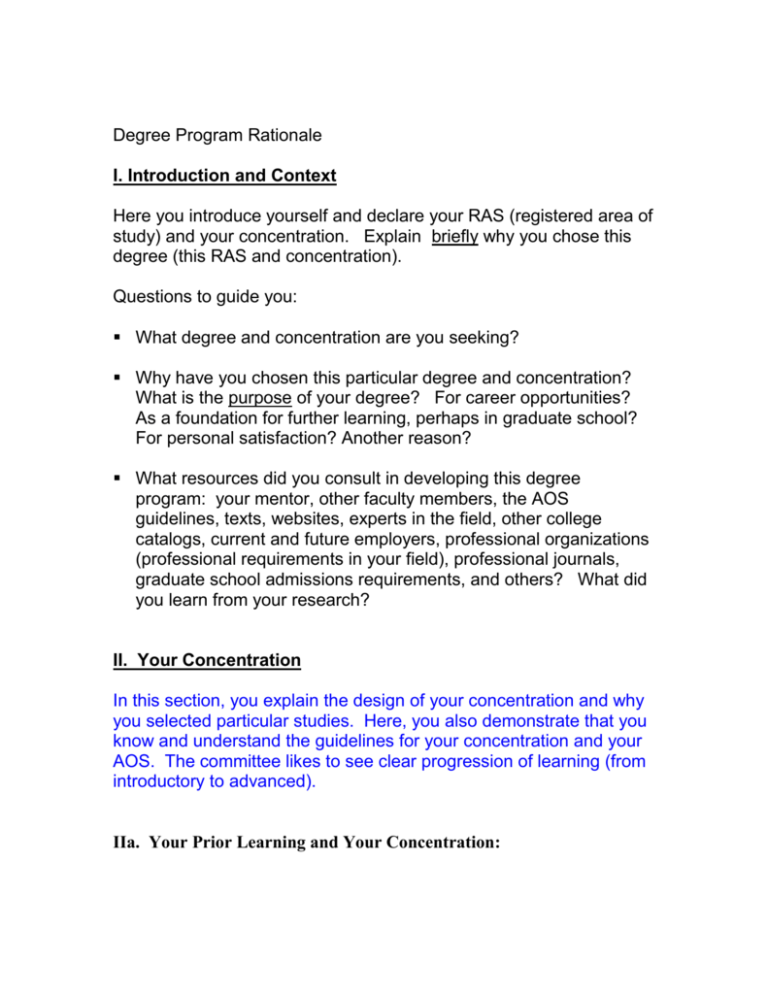
Degree Program Rationale I. Introduction and Context Here you introduce yourself and declare your RAS (registered area of study) and your concentration. Explain briefly why you chose this degree (this RAS and concentration). Questions to guide you: What degree and concentration are you seeking? Why have you chosen this particular degree and concentration? What is the purpose of your degree? For career opportunities? As a foundation for further learning, perhaps in graduate school? For personal satisfaction? Another reason? What resources did you consult in developing this degree program: your mentor, other faculty members, the AOS guidelines, texts, websites, experts in the field, other college catalogs, current and future employers, professional organizations (professional requirements in your field), professional journals, graduate school admissions requirements, and others? What did you learn from your research? II. Your Concentration In this section, you explain the design of your concentration and why you selected particular studies. Here, you also demonstrate that you know and understand the guidelines for your concentration and your AOS. The committee likes to see clear progression of learning (from introductory to advanced). IIa. Your Prior Learning and Your Concentration: How have you used your prior learning in the design of your concentration? - Transcript studies: Discuss how you have used your transcript studies in your concentration. Also, if you are using transcript studies for foundation studies, explain how. - Prior Learning Assessment (PLA): Are you submitting experiential learning that fits into your AOS and concentration? If so, explain how it relates to your concentration. Discuss the types (topics) of experiential learning, the number of credits you hope to get in each, and how each type fits into your concentration. You are not repeating everything in the PLA essays; you are summarizing your prior learning and explaining how those credits fit into your concentration. Also, mention CLEP, licenses, union training, military training, etc., if applicable. IIb. Your ESC Studies and Your Concentration: Why have you selected the topics for your ESC studies? Some reasons for including particular ESC studies in your concentration might be that: - you need to gain a historical perspective in your discipline to round out your hands-on experience, - you need to gain a theoretical perspective to round out your hands-on experience, - you need to develop research skills or - you are preparing for grad school, and you want to broaden your understanding of your discipline. You need to show how your DP meets the guidelines. Use these questions to guide you: How does your DP reflect the AOS guidelines? See pp. 62-90 in the Degree Planning Guide. If your concentration has specific guidelines, how does your DP reflect the concentration guidelines? (See pp. 62-90) How does your DP reflect the expectations or requirements of your anticipated profession? For example, are there particular studies you need in order to apply to graduate school? Are there studies you need in order to be eligible for a licensing exam? If learning that is typically expected in your concentration appears to be absent, have you explained how you have acquired the learning or why it does not appear on your degree plan? Also, mention any research you have done on the guidelines and the sources you used. For example, the Degree Planning Guide is a source, your mentor is a source, etc. III. General Learning and General Education Show how you are using your prior learning and your ESC studies for your general learning and to meet the SUNY general education requirements. If you have room for electives, discuss any electives you are taking and why. IIIa. Your Prior Learning and General Learning/General Education Are you submitting transcript credits that fit in your general learning (perhaps including general education requirements)? If so, explain how they fit. Attach the SUNY general education document. (See Chapter 3, pp. 14-18, in the Degree Planning Guide.) IIIb. Your ESC Studies and General Learning/General Education Why have you selected the ESC studies listed in the general learning column? How do they add breadth to your program? In what way are they meaningful to you? IV. Goals and Conclusion Discuss your plans for the future and how your degree program will help you achieve your educational, professional, and/or personal goals. You will be elaborating on what you first stated in your introduction. This section will also serve as your conclusion. It is important for the committee to know your goals. For example, if you plan to apply to graduate school in a particular area, you may have missed some requirements which the committee members will recommend that you include in your DP. Use these questions to guide you: What are your goals for the future? What career are you preparing for? Or are you advancing in your current career? (Or do you have more personal reasons for earning a degree? Perhaps the degree is a way to gain recognition for what you have achieved in your life.) How will this particular degree program help you meet your goals? How does your concentration meet the specific career requirements in your current or anticipated field?** ** Ed Studies students should include a clear statement about understanding that their degree will not result in teacher certification. Resources: Student Degree Planning Guide 2008-2009 Chapter 10, “Writing Your Degree Program Rationale,” pp. 42-44 Supporting Materials, Section C: Area of Study and Concentration Guidelines, pp. 62-90 Supporting Materials, Section D: Writing Your Degree Program Rationale, pp. 91-98 For sample degree rationale essays listed by area of study: Go to www.esc.edu/writer and click on File Cabinet. You will need to log in. When you get into the File Cabinet page, scroll down to the Degree Rationale link.

